
Celebrating Palo Alto University's All-Woman Cabinet Leadership
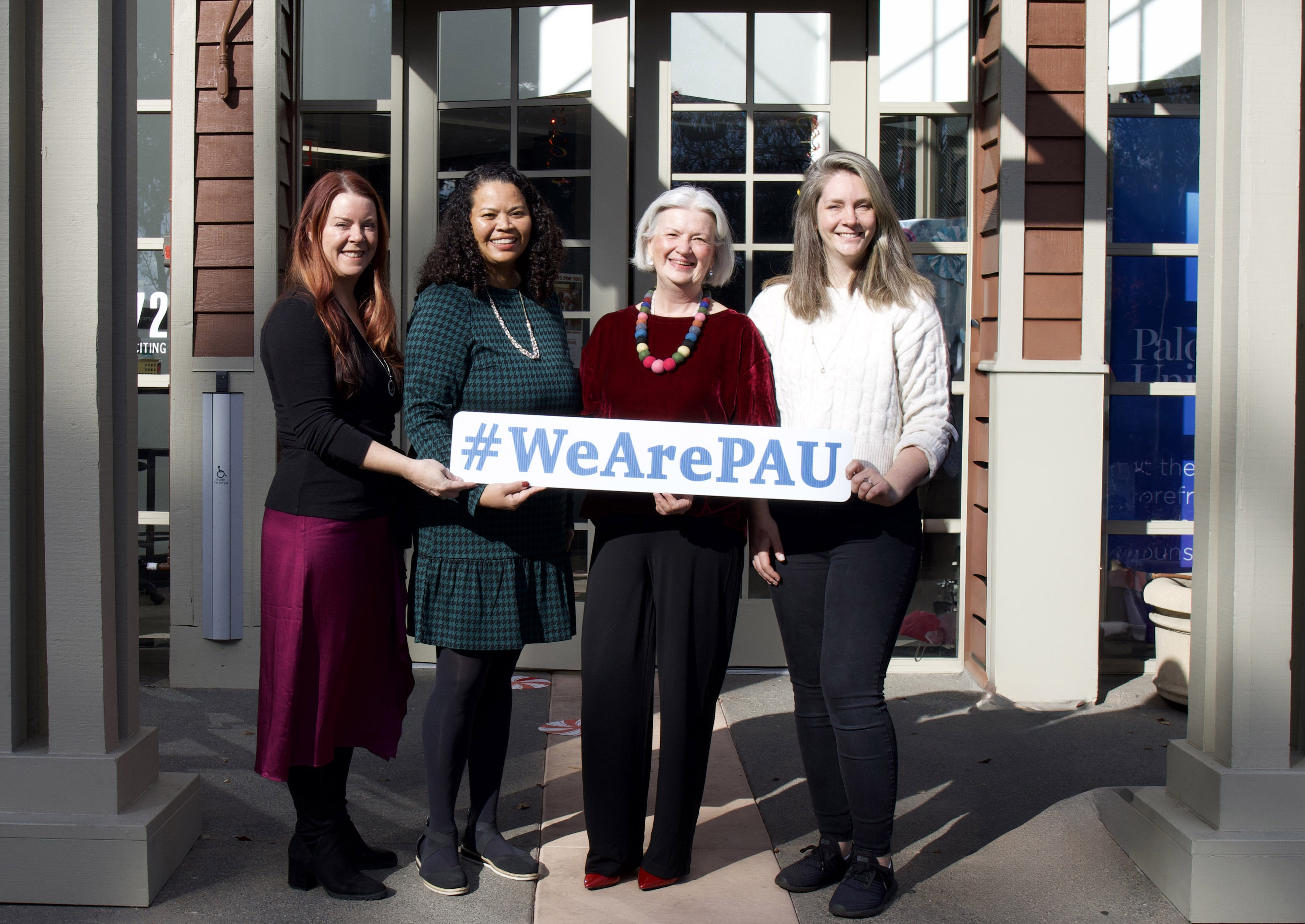
Palo Alto University (PAU) is proud of our many talented and accomplished women leaders. In celebration of Women's History Month, we are honored to spotlight the remarkable achievements of women at PAU who have made indelible impacts both within and outside our University. Throughout March, visit our social media platforms as we showcase women making an impact. These women epitomize PAU's steadfast commitment to inclusive excellence with their diverse backgrounds, distinct viewpoints, and invaluable contributions.
Palo Alto University’s All-Woman Cabinet
With women accounting for only about 25% of leaders in higher education, Palo Alto University’s five-person, all-woman, Cabinet is breaking the glass ceiling. These five women, each an expert in their respective professional domain, come together to form a leadership team greater than the sum of its parts. Get to know these fantastic women by reading their responses to three questions about their most significant accomplishments, inspirational influences, and the most valuable lessons they’ve learned about leadership and personal growth.
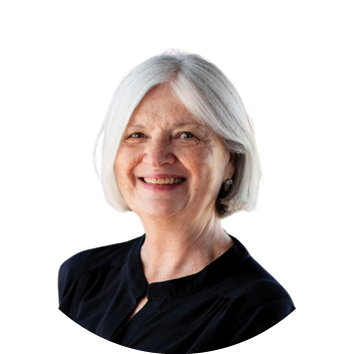
Maureen O'Connor, PhD | President
Dr. O’Connor became Palo Alto University’s first woman president in 2016 after serving 18 years in various roles at The City University of New York (CUNY). Dr. O’Connor earned a PhD and a JD in psychology, law, and policy at the University of Arizona. Before launching her academic career, she clerked for the late Honorable Patricia Wald, then Chief Judge of the D.C. Circuit Court of Appeals. Maureen is a Fellow of the American Psychological Association (APA), and has held numerous governance roles, including as Chair of APA’s Task Force on Human Rights. She has been active in the Society for the Psychological Study of Social Issues (SPSSI/APA Division 9) for many years, including serving as its President. She is a member of the 39th class of the American Leadership Fellows program in Silicon Valley and serves on the Executive Committee of the Association of Independent California Colleges and Universities (AICCU).
Maureen believes in a distributed leadership model - where leadership is not just a position but a shared responsibility that empowers all to thrive and contribute - and in inclusive excellence, at the heart of PAU's strategic plan, reflecting her commitment to fostering a collaborative and diverse environment.
What do you see as your most significant professional accomplishment?
The privilege of mentoring amazing undergraduate and graduate students, of supporting faculty in the advancement of their careers, research, and teaching; and of helping leaders and aspiring leaders to see and reach their full potential.
Is there a woman in the present or history who has significantly influenced or inspired your journey? If so, could you share who she is and explain how their contributions or achievements have influenced your own career or perspectives?
I have had several phenomenal mentors, but Dr. Faye Crosby stands out among them. Faye is an inspiring and ground-breaking social psychologist and social justice/gender scholar. Since graduate school, she has been there with wise counsel at critical career junctures. She supported the courage of my social justice convictions as I moved into leadership roles. To this day, she models respect, equity, and the critical importance of being in community, networking, and lifting up those around you.
Looking back on your career journey, what is the most valuable lesson you've learned about leadership and personal growth?
That if you can guide and support someone else to succeed in their lives and careers, we will all win!
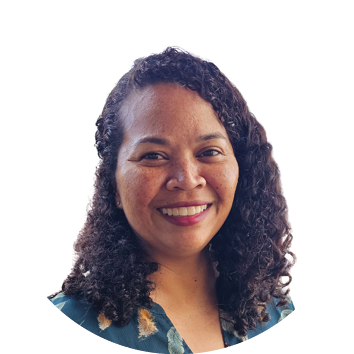
Erika Cameron, PhD | Provost and Vice President of Academic and Student Affairs
Dr. Cameron earned her PhD in Counselor Education from the University of Missouri - St. Louis, her master’s degree in Guidance and Counseling from the University of Hawaii, and her bachelor’s degree in graphic design from Bradley University where she was a Division I volleyball player. She has written and co-authored a book, book chapters, and articles on Multiculturalism and Social Justice in Counseling, Counselor Professional Development, and Individual Psychology. Erika was the 2020 recipient of the Association for Counselor Education and Supervision’s Counseling Vision and Innovation Award.
Erika describes her scholarship as inherently and purposefully multidisciplinary in the fields of mental health counseling and therapy, consisting of three primary interrelated themes: multicultural competence, crisis and trauma, and professional development. She regularly presents at state, regional, national, and international professional conferences and enjoys presenting with graduate students. Erika has worked as a school, career, and mental health counselor with a variety of clients but specializes in work with children who have experienced trauma and utilizing expressive therapeutic interventions in school counseling. She is an active member of the American Counseling Association, the Association for Counselor Education and Supervision, and the American School Counseling Association and is a past president of the Western Association of Counselor Educators and Supervisors.
What do you see as your most significant professional accomplishment?
Becoming the first woman of color to serve as the Provost and Vice President for Academic and Student Affairs of Palo Alto University. I am deeply committed to utilizing my insights and expertise to continue to champion inclusivity, equity, and excellence throughout our university community. As a bonus, every day, I have the opportunity to collaborate with, uplift, and empower the exceptional students, faculty, and staff of our University.
Is there a woman in the present or history who has significantly influenced or inspired your journey? If so, could you share who she is and explain how their contributions or achievements have influenced your own career or perspectives?
My late mother, Domelynne Nash, was an incredible woman who had dreams of becoming a teacher. While she never completed that dream she instilled in me the importance of education and the drive to achieve my goals. She embodied a life of service beyond self, instilling in me the principles of sharing, caring for others, and loving those around me. This was especially evident in her retirement! Setting out on an adventure to live in Japan with my father. Every week you would find her volunteering with Ekikita, a small group of women who weekly cook meals for individuals who are unhoused or experiencing food insecurity. Each year my family returns to Japan to volunteer with Ekikita to honor her by serving others. Her influence and values have profoundly shaped me into the woman, counselor, educator, and leader I am today, reflecting her legacy of service above self and leading with compassion.
Looking back on your career journey, what is the most valuable lesson you've learned about leadership and personal growth?
The most valuable lesson I have learned is about the importance of work-life balance. Achieving this balance requires understanding yourself deeply, silencing external pressures that can cause anxiety and doubt, unapologetically prioritizing oneself and loved ones (in my case, my husband and kids), and ensuring a supportive network of people around you. With this balance, I can handle workload demands, take time to destress, and be a better reflective leader.
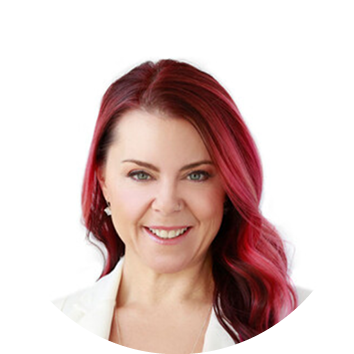
Patricia Zapf, PhD | Vice President of Business Innovation & Strategic Advancement
Dr. Zapf earned her PhD in clinical psychology with a specialization in forensic psychology from Simon Fraser University and has published 10 books and manuals and more than 100 peer-reviewed publications on topics related to forensic evaluation, criminal competencies, ethics, bias, and forensic psychology. Before her current role, Patricia was Vice President of Continuing and Professional Studies after bringing her professional training company, CONCEPT, to Palo Alto University in 2018. She founded CONCEPT Professional Training in 2009 to elevate the practice level in psychology and related professions. Before coming to PAU, Patricia was a professor of psychology at John Jay College of Criminal Justice, City University of New York (CUNY) for 16 years. During that time, she was instrumental in developing a new doctoral program in clinical psychology with an emphasis in forensic psychology; She served as that program’s first Director of Clinical Training. Patricia is a past President of the American Psychology-Law Society (AP-LS; Division 41 of the American Psychological Association), a Fellow of the American Psychological Association (APA), and a Distinguished Member of the American Psychology-Law Society (AP-LS). She currently serves on the board of directors for the International Association of Forensic Mental Health Services (IAFMHS) and as the book series editor for the International Perspectives on Forensic Mental Health series.
What do you see as your most significant professional accomplishment?
I’ve built a strong professional reputation within the field of forensic psychology, of which I am immensely proud. I was appointed a Fellow of the American Psychological Association and a Distinguished Member of the American Psychology-Law Society six years into my career for outstanding contributions to the science and practice of forensic evaluation. My work has been cited by the United States Supreme Court and in court cases in both the United States and Canada. I founded CONCEPT professional training as a means of elevating the practice of forensic psychologists and am proud that with the acquisition of CONCEPT by Palo Alto University, I have been able to extend the reach of CONCEPT to other mental health professionals in other specialty areas of practice to better serve our communities.
Is there a woman in the present or history who has significantly influenced or inspired your journey? If so, could you share who she is and explain how their contributions or achievements have influenced your own career or perspectives?
Notorious RBG. I’ve been inspired and influenced by the work and personal characteristics of Ruth Bader Ginsburg, who served as a Supreme Court Justice from 1993 until she died in 2020. Ginsburg portrayed the essence of strategic advocacy, carefully and strategically choosing cases that would further her argument for gender equality, selecting cases in which male plaintiffs were the subject of discrimination to further her pursuit of and buttress her arguments for gender equality for all, and carefully arguing cases in a strategic order to build on the victories of previous cases and arguments, culminating in ending gender discrimination in many areas of the law. She was tenacious yet kind-hearted and always well-reasoned. She slowly chipped away in a strategic fashion to further her ultimate goal. RBG inspires me to keep my eye on the prize, to strive to be thoughtful and strategic about how best to accomplish goals, and to learn from and build on earlier successes (and failures).
Looking back on your career journey, what is the most valuable lesson you've learned about leadership and personal growth?
Being genuine is important above all else. Seeing each person as another human being with hopes, dreams, frustrations, desires, emotions, responsibilities, and multiple roles helps keep life in perspective and makes it easier to make genuine connections, which fosters the ability to lead.
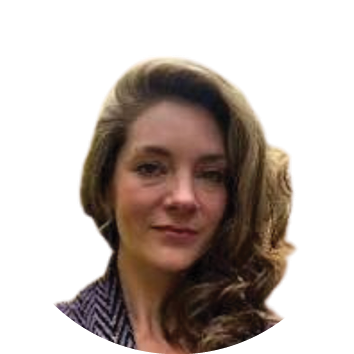
Melanie Morrison, MBA | Director of Board & Presidential Operations
Melanie Morrison earned her Masters in Business Administration from Notre Dame de Namur and brings over 10 years of experience in Higher Education to her role as Director of Board and Presidential Operations. Melanie provides operational support, manages special projects for the President's Office, and serves as the Secretary to the Board of Trustees. She started at PAU in 2011 in the Office of Academic Affairs as an Administrative Assistant, later becoming the Executive Assistant to the Dean and then the Executive Assistant to the President. Melanie is an alum of the inaugural class of the BS in Business Psychology Program at PAU.
What do you see as your most significant professional accomplishment?
My most significant professional accomplishment centers around cultivating a supportive environment at PAU that strives to bring out the best in people. I’ve done this through my direct support of Maureen over the last seven years, building structure and framework to reinvigorate collaboration with our Board of Trustees and by providing hands-on support and guidance directly to colleagues and peers.
Is there a woman in the present or history who has significantly influenced or inspired your journey? If so, could you share who she is and explain how their contributions or achievements have influenced your own career or perspectives?
My grandma, Lorraine, is the first person who comes to mind. Born to a poor immigrant family during the Great Depression, she defied the odds and went on to earn a Doctorate in Education. Later she became the Director of Academic Programs for Human Biology at Stanford University (1979-1993). Her passion for education was infectious, inspiring my mom, aunt, and eventually myself to pursue psychology-related careers.
Looking back on your career journey, what is the most valuable lesson you've learned about leadership and personal growth?
Reflecting on my career journey, my most valuable lesson about leadership and personal growth is recognizing that leadership and brilliant ideas can come from anyone, regardless of their position within the organization. Early in my career, those in leadership positions often took the time to listen and genuinely consider my ideas. These moments helped me grow, boost my confidence, and make me feel truly valued. Now, I’m dedicated to cultivating an environment where diverse perspectives are embraced and encouraged while recognizing the immense value of inclusive leadership for our collective growth and success.
The women leading PAU represent diverse backgrounds and experiences, yet they are united by a shared commitment to inclusive excellence, innovation, and student success. Their accomplishments and insights demonstrate that leadership takes many forms. By leading with compassion and fostering community, women continue to create positive change at Palo Alto University and beyond.
Don’t forget to check out our Instagram page for weekly highlights of women leaders throughout March!
To learn more about Palo Alto University’s leadership team, please visit: https://www.paloaltou.edu/women-leaders
